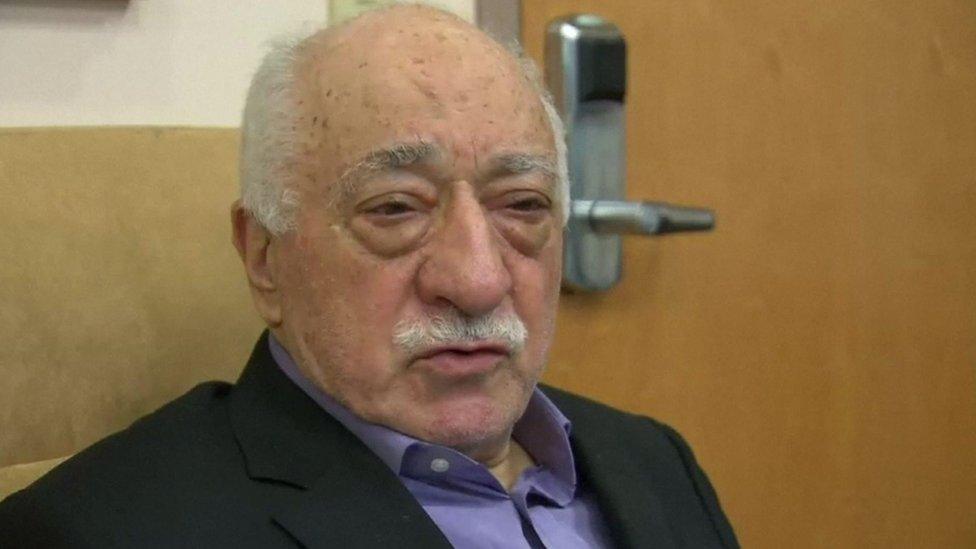Turkey-US row: Erdogan 'upset' by visa suspension
- Published
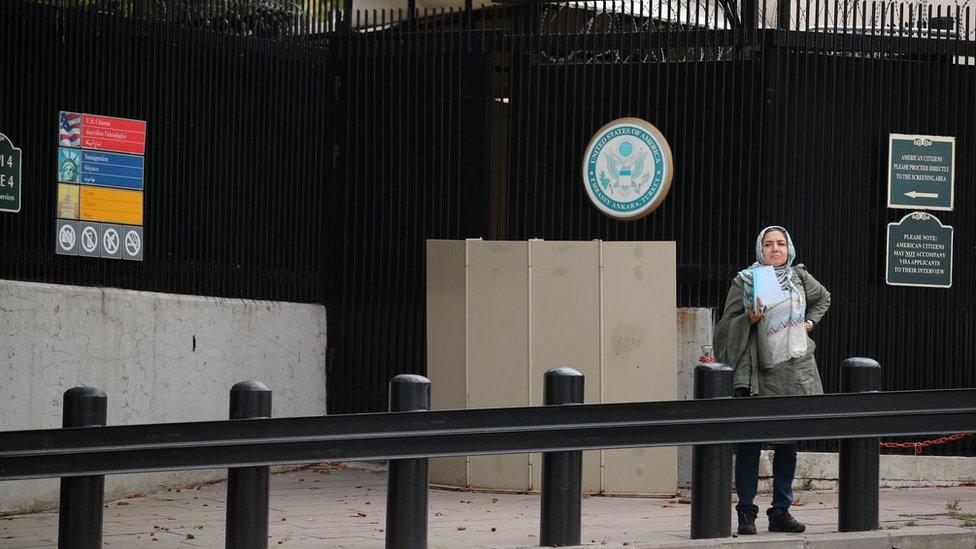
The US has suspended all non-immigrant visa services
Turkish President Recep Tayyip Erdogan has described a US decision to suspend most visa services as "upsetting".
He said Turkish officials had contacted their US counterparts about the move, which was prompted by the detention last week of a Turkish national working at the US consulate in Istanbul.
Turkey has also suspended visa services in the US.
Prosecutors are seeking another consulate worker for questioning as a suspect, the state news agency reports.
The first worker was held over alleged links to a cleric blamed for the failed 2016 Turkish coup, but no reason has been given for the latest action.
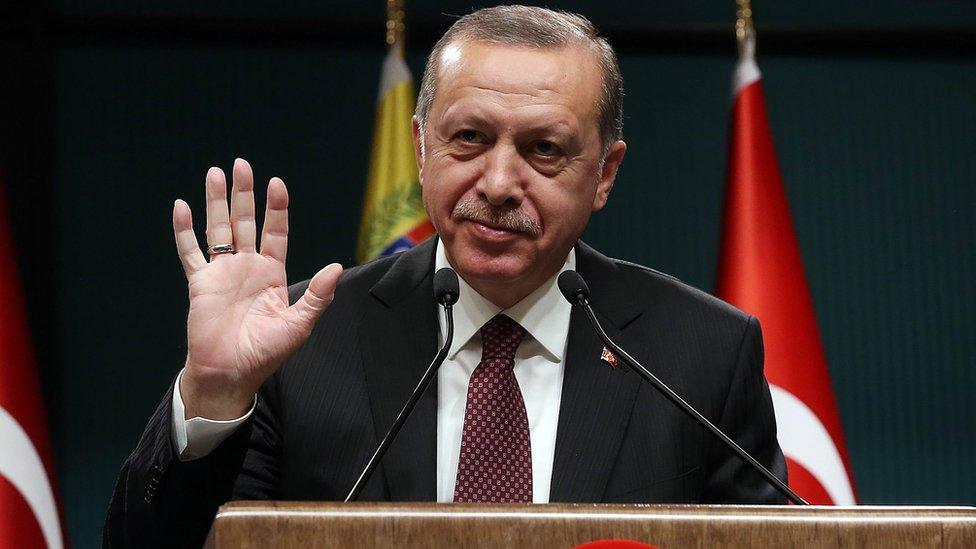
Mr Erdogan's relations with Washington have been tense for some time
The row has driven down Turkey's currency and stocks.
"This decision is very, very saddening. For the Ankara [US] embassy to take a decision like this, to put into practice is saddening," Mr Erdogan said at a news conference in the Ukrainian capital Kiev.
Several Turkish news networks announced earlier on Monday that a warrant had been issued for a second US consulate worker.
Turkish officials have not confirmed the warrant, but later the state news agency Anadolu reported that prosecutors were seeking the man for questioning as a suspect, adding that he did not have diplomatic immunity.
It said the suspect's wife and child had been detained in the city of Amasya, in northern central Turkey.
Who is affected by the latest moves?
It will no longer be possible to get a visa to the US in Turkey unless the applicant is permanently moving there.
However US ambassador John Bass stressed that the move was not a ban on Turkish citizens. He said visas already obtained could still be used, and applications could still be made outside Turkey.
In a written statement, he said he hoped the suspension would not last long and that it would depend on talks between the two governments.
In its statement, external on Sunday, the US embassy in Ankara said: "Recent events have forced the United States government to reassess the commitment of government of Turkey to the security of US mission and personnel.
"In order to minimise the number of visitors to our embassy and consulates while this assessment proceeds, effective immediately we have suspended all non-immigrant visa services at all US diplomatic facilities in Turkey."
In the 2016 fiscal year, the US issued 82,735 non-immigrant visas in Istanbul and 30,505 in Ankara, according to state department figures, external.
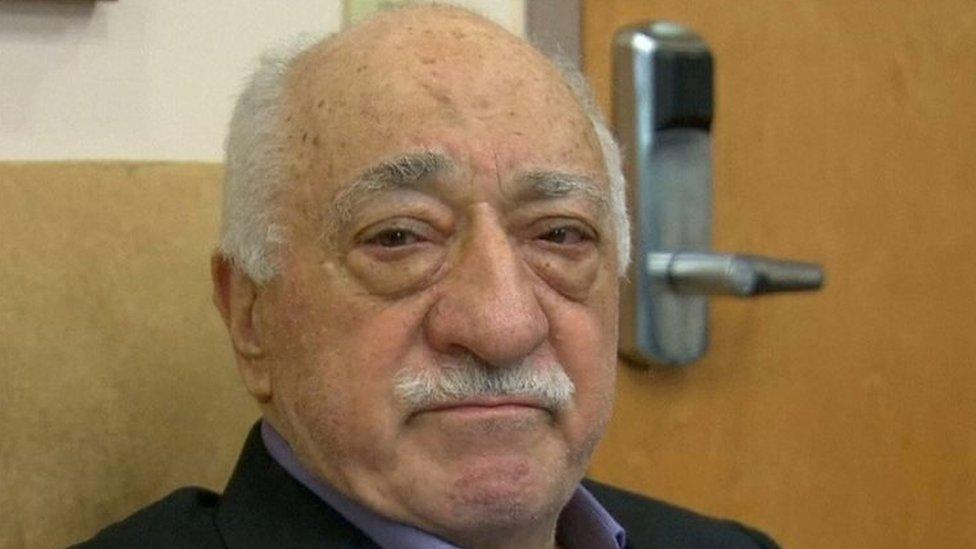
Turkey accuses Fethullah Gulen of being behind the failed coup - a charge he denies
The Turkish statement, external mimicked the American one, but said that "effective immediately we have suspended all visa services regarding the US citizens at our diplomatic and consular missions in the US".
It added: "This measure will apply to sticker visas as well as e-visas and border visas."
Meanwhile Turkish Airlines announced that passengers with tickets to and from the US up until 31 October were eligible for refunds or exchanges, the pro-government newspaper Yeni Safak reported.

Political 'hostages'
Mark Lowen, BBC News, Istanbul
Turkey stands accused of holding detainees as hostages in its bilateral disputes.
As well as the consular employee, an American pastor was arrested here a year ago. Several German nationals are also in custody as Ankara presses the US to extradite the cleric it accuses of masterminding the coup, and urges Berlin to deport Turkish citizens who have claimed asylum there.
Germany has already warned its nationals against travelling to Turkey.
There could now be a similar response from Washington in this unprecedented row.

What is the row about?
Last week consular employee and Turkish citizen Metin Topuz was arrested, accused of espionage and links to US-based cleric Fethullah Gulen.
Ankara has for months been pressing Washington to extradite Mr Gulen over his alleged role in the botched coup in July 2016.
Mr Erdogan accuses Mr Gulen of instigating the unrest - a charge the cleric denies.
Anti-Erdogan demonstrators are punched as they are removed from a New York hotel
In the aftermath of the coup attempt, which was led by military officers, 40,000 people were arrested and 120,000 sacked or suspended.
The new diplomatic low between the US and Turkey comes less than a month after Donald Trump said ties between the countries were "close as we've ever been".
But tensions have been brewing for some time, with the US complaining of heavy-handed treatment of pro-Kurdish demonstrators by Turkish security officials at Mr Erdogan's visit to Washington in May.
The Turkish embassy said Turkish-Americans who had come to see the president were provoked by the protesters.
In September, demonstrators were beaten and ejected from a New York hotel after interrupting a speech by Mr Erdogan, who was in the city to speak at the United Nations General Assembly.
- Published9 October 2017
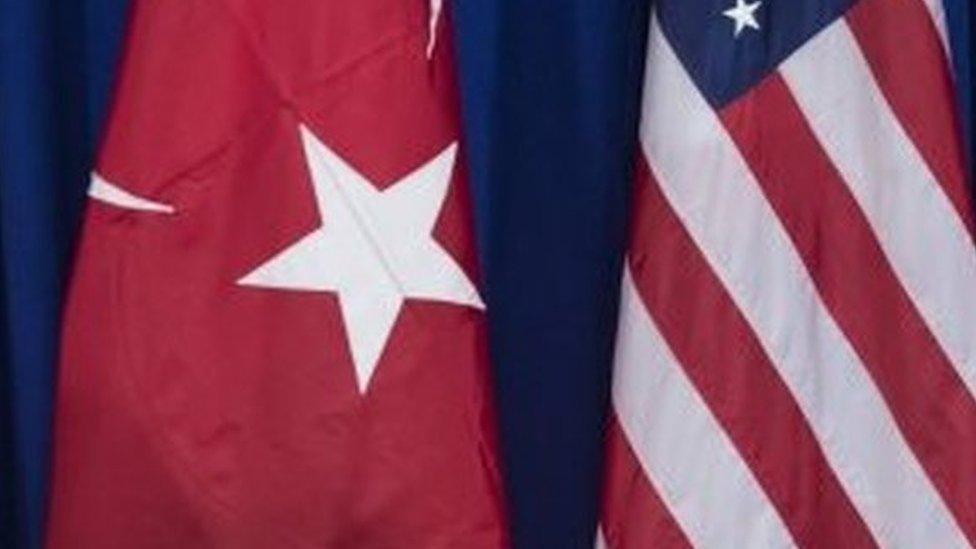
- Published22 September 2017
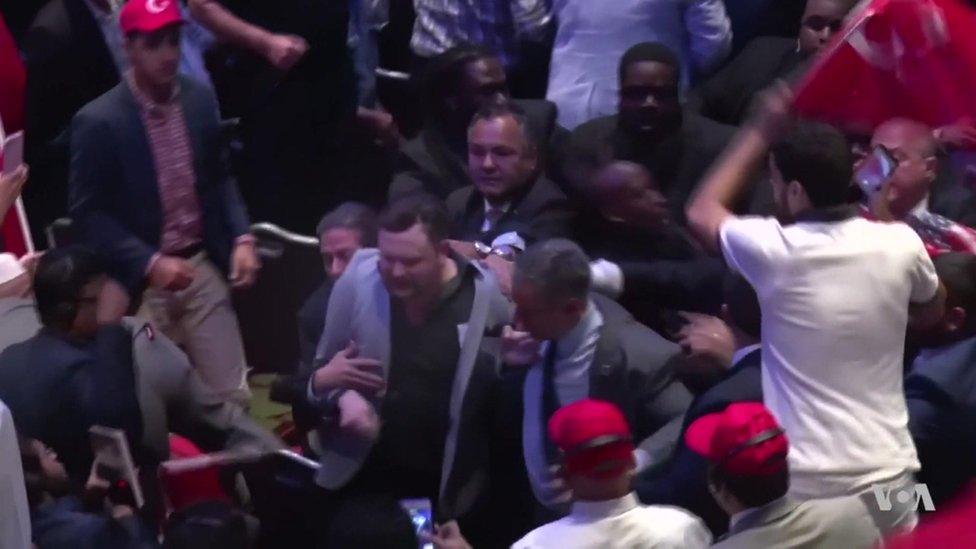
- Published22 May 2017
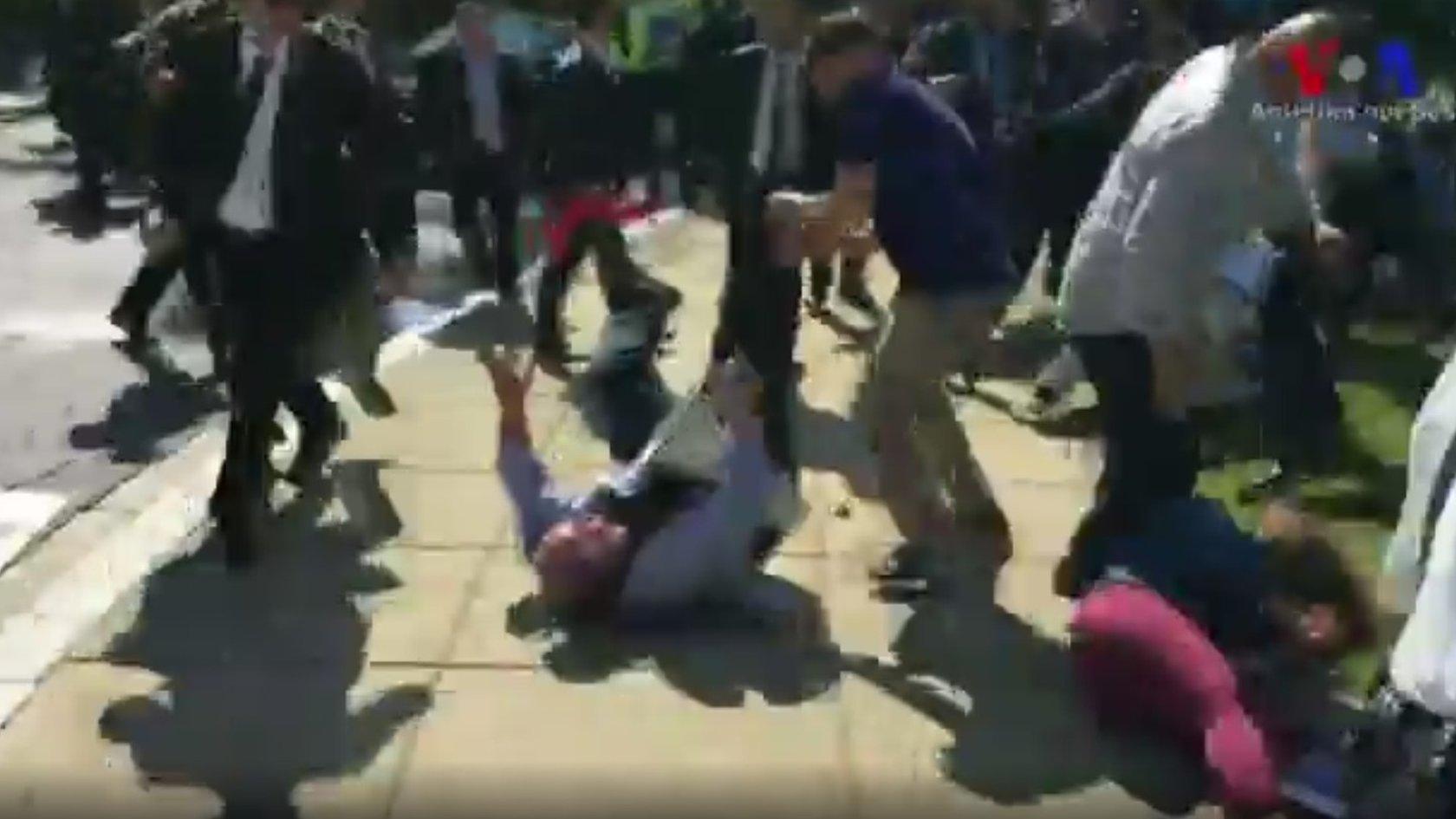
- Published27 April 2017
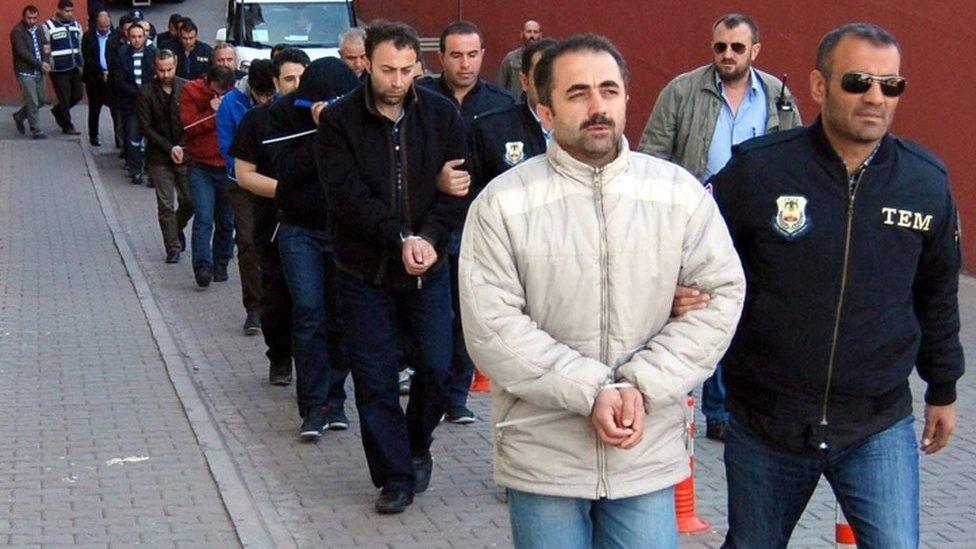
- Published19 July 2016
